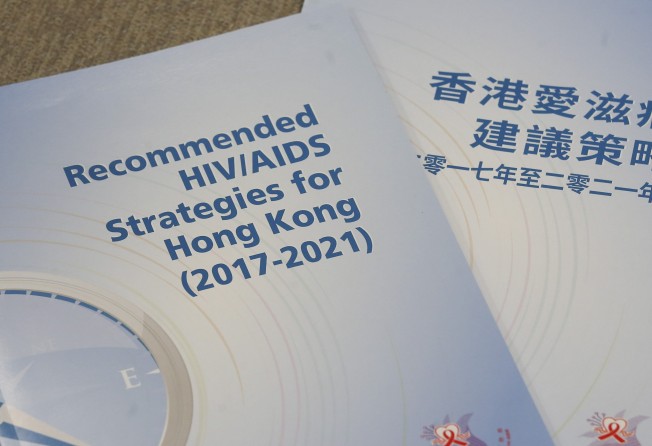Fighting Aids in Hong Kong hinges on affordable, locally relevant strategies

Despite our decade-long efforts, HIV infections have continued to rise, most noticeably among young men who have sex with men (MSM).
Drug abuse, inconsistent condom use, inadequate testing and coverage of treatment, and discrimination against at-risk groups are key factors for this worrying trend.
The Advisory Council on Aids has just released its Recommended HIV/Aids Strategies for Hong Kong (2017-2021), setting out its updated measures for key populations. MSM and people living with HIV are two primary targets.
While annual HIV testing is urged for MSM, they should also use condoms consistently for their regular and casual partners. Treatment saves lives and prevents onward transmission.
The international common goal which also applies to Hong Kong is that, by 2020, 90 per cent of people living with HIV would have been diagnosed, 90 per cent of those diagnosed would receive treatment, and 90 per cent of those on treatment would have their viral load suppressed.
Other community groups including people who inject drugs, ethnic minorities, male-to-female transgenders, and female sex workers and their clients, can potentially become contributors to the local HIV epidemic. Our strategies also have clear targets for them.
These public health strategies were formulated through a consultative, integrative and participatory process. In the last two years, we consulted stakeholders and the public, and made references from recommendations of overseas health authorities. As effective prevention and control strategies, they must be locally relevant, evidence-informed, acceptable and affordable, and conducive to a supportive environment and community participation.
The World Health Organisation (WHO) forecasts that the next five years will be crucial to the trajectory of the HIV epidemic curve. It therefore behoves all of us to frontload the most focused and impactful measures.
Their successful execution will require the concerted efforts of key stakeholders, the health care profession, funding agencies, academia and the government.
Our vision echoes that of UNAids [Joint United Nations Programme on HIV/Aids], that is, ultimately zero new HIV infection, zero discrimination, and zero Aids-related death.
Dr Susan Fan, chairperson, Hong Kong Advisory Council on Aids